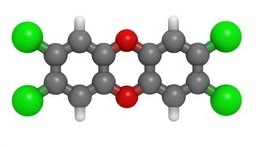Along with the development of industry and technology, more and more hard-to-degrade pollutants and wastes are generated, not only from a wide range of sources, including various types of wastes from industries such as oil refining, petrochemical, wood processing, and gas but also these wastes bring predictable hazards to the environment.
Biodegradation technology is one of the most beneficial methods at present which can effectively treat some organic solid wastes. It can avoid the secondary pollution brought by chemical methods and the large amount of land occupation brought by landfills.

Lifeasible believes that the value of waste is not yet fully exploited and many teams are working on this issue worldwide, so Lifeasible has launched a waste biodegradation technology service; not only can we develop a reasonable biodegradation plan for our clients based on the basic properties of the waste, but we are also committed to developing biodegradable microorganisms or other substances, intending to obtain additional by-products through recycling, such as humus fertilizer, biogas, ethanol, etc. through biodegradation, which can be used as energy for human life.
Lifeasible provides screening and purification of various efficient degradation bacteria and has established a library of efficient strains concerning environmental pollutants. Our perfect experimental equipment and conditions can preserve the existing purified strains. We can further screen and domesticate specialized strains according to customer needs and develop efficient degradation bacteria continuously.
In addition, some organic pollutants are difficult to be degraded by a single strain of bacteria. Therefore, Lifeasible can also develop complete test protocols for biodegradation relying on the combined action of two or more microorganisms, solving your pre-experimentation and condition mapping process, shortening the project cycle, and the experimental results come with a rigorous validation program to ensure the reproducibility of the program.
PAEs are blended into polymers as external plasticizers without chemical bonding. Therefore, PAEs may migrate out of the material and thus be exposed to people or the environment, and PAEs can be effectively dealt with using biodegradation methods.
PCBs are long-term residual, bioaccumulative, semi-volatile, and highly toxic, capable of long-range transport and deposition in the environment, indirectly causing toxicity to the human and animal immune systems, affecting reproduction and development, and having carcinogenic effects.

PCBs can be effectively degraded by using the anaerobic process, in which microorganisms decompose under aerobic or anaerobic conditions using PCBs as a carbon or energy source while generating energy to meet their growth and reproduction needs, or by using the co-metabolic process, in which another substrate is used as a carbon or energy source during the growth and metabolism of microorganisms while converting PCBs and other target pollutants.
Some mercury-containing wastes may cause neurological, immune, reproductive system, and other functional damage and produce chromosomal aberrations in humans and animals. In contrast, Pseudomonas, Proteus mirabilis, E. coli, and yeast not only have a high active degradation capacity, making the toxicity of organic mercury in the environment is significantly reduced.
PE has caused serious ecological "white pollution", Penicillium simplicssimum YK, Streptomyces sp., Candidamaltosa, Neisseriaceae, Vibrio fisheri, V. Lahrveyi, Photobacterium phorobacterium, and other microorganisms.
Lignin is the main rate-limiting organic matter in the composting process of agricultural wastes, and its degradation is considered to be the key to rapid composting. The dominant lignin-degrading microorganisms are bacillus subtilis, Pseudomonas aeruginosa, Aspergillus niger, Penicillium simplicissim, Streptomyces badius, etc.
The use of microorganisms for waste decomposition is a beneficial approach to a wide range of waste sources and species. Lifeasible offers our clients the screening, purification, and preservation of a wide range of highly efficient biodegrading bacteria and the development of complete test protocols for biodegradation based on the general characteristics of the waste. Please contact our staff to submit your requirements and we will customize a solution for you as soon as possible.